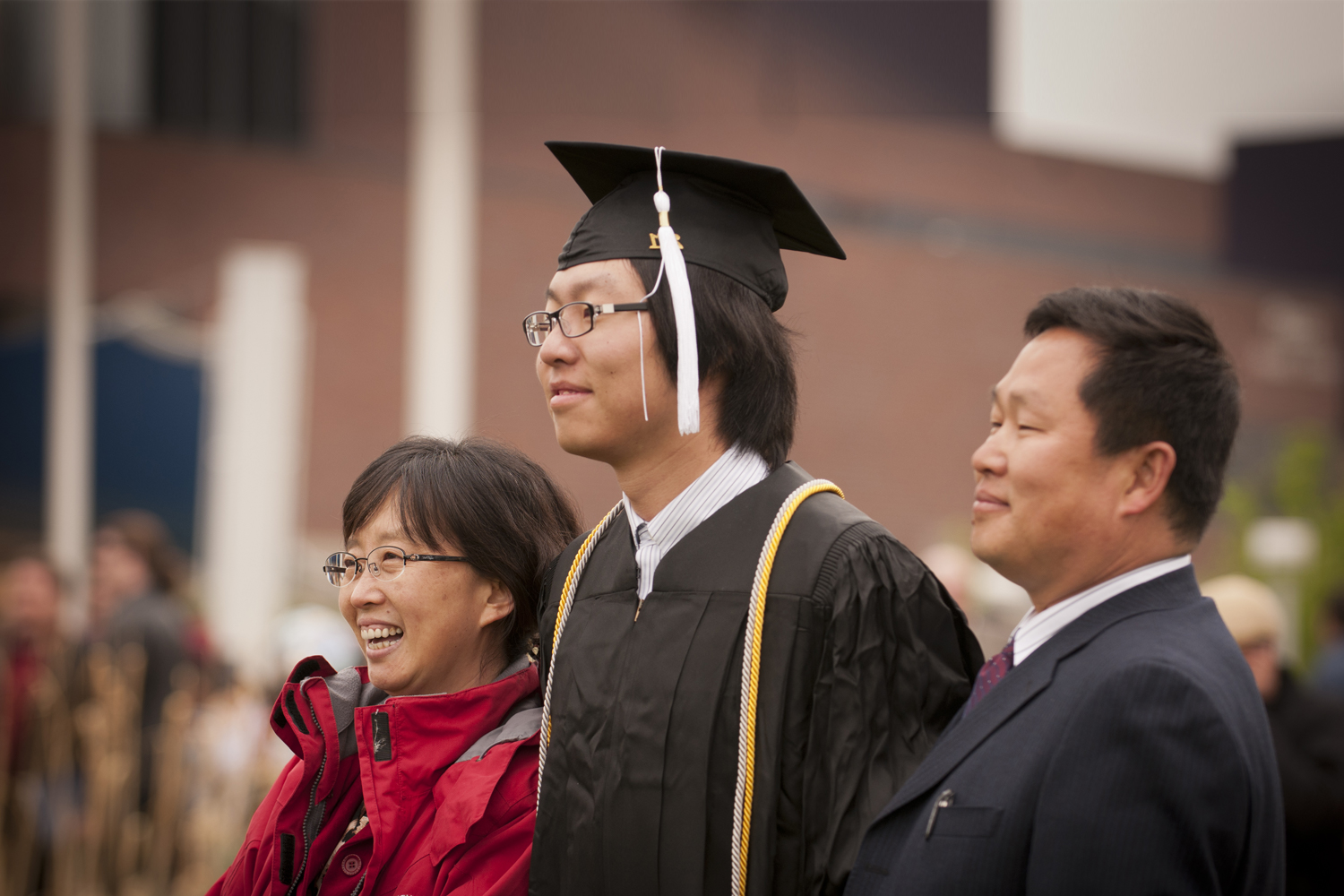A Career or a Family?
The Tough Decision Young Chinese Women Face
Nov 27, 2013
By Lichao Sun
Fanggu is a Chinese girl from a rural area. She made a studious attempt for a higher education and was successfully admitted to a university in Shanghai. After graduating, she took two years to look for any job opportunity that would allow her to stay in Shanghai, and finally landed a job in a small business paying a limited salary. Thanks to her excellent performance over the next three years, she became the department manager. However, these outstanding competencies also brought her the title of “Miss Independent” in the company. She was in an embarrassing situation such that male employees kept her at arm’s length, while other female employees were jealous of her promotion. Moreover, she was overwhelmed by the stress from her parents in rural China urging her to find a husband soon because she was already over 25 years old. Finally, Fanggu decided to resign her position and look for an easier job closer to her hometown so that she could create her own family to satisfy her parents.
English
Many Chinese women, similar to Fanggu, suffered from the entrenched gender gap in the workplace, as well as from shouldering stress from their marriages and families. Twenty-nine year old Limeng is another good example of “leftover” women, symbolizing urban, educated women who have good careers but are still single after the age of 27. Limeng obtained her master’s degree from a famous business school in the Britain two years ago, and soon became the product manager in the Beijing branch of an international company. However, Limeng wondered if it was wise to pursue higher education abroad instead of looking for a husband, since she had already had 200 unsuccessful blind dates.
“Men are still thinking in the old ways. They desire a young wife under the age of 25, which is the best child-bearing age,” said Limeng, “Though I have stable income, men prefer a younger wife.” Limeng is now applying for the popular television dating show, “You Are the One,” to look for a husband throughout the country.
After university graduation, female students have to make a series of tough choices between career and family. When jumping into the job market, women must suffer from the unfair competition with male applicants for job offers, receive fewer opportunities for promotion, receive incomplete welfare policies, and are affected by gender discrimination in the workplace. According to a survey on the Finance China websites, fifty percent of female applicants felt their gender negatively influenced hiring, especially when they compared experiences with male applicants who had similar qualifications. Many respondents reflected that marriage, pregnancy, and other personal family issues are the primary questions that concern most companies about female applicants, rather than their academic backgrounds or performance during the interview.
“Women workers are entitled to maternity leave with full pay. That can be a large cost for some small companies. In order to decrease additional expenses, managers prefer to limit the total number of women employees,” a respondent said. Moreover, women over the age of 30 encounter more difficulties when looking for new jobs. Most of them are married and raise their children at home for a few years, but they rarely are rehired, since an increasing number of younger, energetic female employees compete for the same positions in the workplace.
Though some female applicants successfully become part of a company, there are many problems waiting for them. Pregnancy, something that should be an exciting event for a family, becomes a challenging problem for many female employees. Many Chinese women postpone pregnancy for years in order to receive promotions in the workplace. A Chinese woman who successfully earns a degree from a university is usually approximately 23 years old. It takes two or three years for a female employee to gain working experiences sufficient to receive a promotion, when she is 25 or 26 years old The mid-twenties is considered by many to be the “golden” time for pregnancy. However, giving birth to a baby traditionally means taking least one year away from the workplace. During this time, the employee runs the risk of someone else receiving the promotion instead of her. Because of this, many women who are devoted to enterprise decide to delay the time of giving birth, contributing to an increase of ten percent of “over-aged pregnancies” in the workplace. The workplace dynamics cause women like Fanggu and Limeng to keep pursuing a higher education or a better job position, while still shouldering the censure of being considered “leftover” by society.
Many modern Chinese women, both those who have struggled in the workplace for years and those who recently graduated from college, drop out of the workforce and return to their home. According to census figures, China’s urban employment rate for working-aged women fell to a new low of 60.8% in 2010, down from 77.4% twenty years earlier.
Most Chinese men and women still keep a traditional belief of gender roles: men should work outside, while women belong at home (“nanzhuwai,” “nüzhunei”). In fact, the cultural perspectives still play a significant role in shaping the public’s opinions on women in workplaces. Traditional Chinese culture emphasizes women’s duties of raising children as well as of taking care of their husbands and families’ daily lives. Chinese women are expected to primarily take the burdens of housework and childcare rather than working outside of the home. Added to this are conditions of economic recession and high unemployment. This influences Chinese women’s preference to look for a reliable husband and stay at home, instead of competing in the workplace by themselves.
Following graduation, most Chinese women will have to decide which route best leads to their future happiness: to develop a career, or to get married and have a family? This question of how best to balance the relationship between work and family will concern Chinese women for years.
Learn more about this subject:
Chinese
成家?立业?年轻的中国女性面临的抉择
记者:孙立超
方谷是一名来自乡下的中国女孩。她辛勤学习最终获得在上海一所大学继续学习的机会。毕业后的她花了两年时间寻找工作机会,希望能够留在上海。最终,她以很低廉的薪水进入了一家当地的小公司。但幸运的是,凭借着接下来三年出色的工作表现,方谷晋升为了部门经理。然后,她优秀的表现同时给她带来了女强人的称号。她在公司处于一个十分尴尬的境地:男职员总是避他三分,女职员总是对她在背后说三道四。另外,方谷还要承受着来自乡下父母的压力。她的父母一直劝她早日完婚。最后,超过25岁的方谷承受不住来自多方的压力,决定辞去现在的职位,回到离她家乡近的地方再寻找工作,这样她就能在当地早日成家,满足父母的心愿。
许多中国女性,像方谷一样,承受着职场中巨大的性别差异对待,同时忍耐着来自家庭和婚姻的压力。29岁的李萌作为一个剩女,是另外一个很好的例子。剩女代表着在大城市中受到过良好教育,拥有很好个人事业,但年龄超过27岁的中国女性。李萌两年前在英国一个有名的商学院获得了硕士学位,并且成功的成为了一家国际贸易公司北京支行的产品经理。然后,李萌现在却怀疑当年留学海外的决定是否正确。如今,她已经参加了近两百场的相亲,却仍找不到心仪的对象。“男人还是老思想:他们只想找个年轻,漂亮的妻子。”李萌说,“25岁的女性同时也在最好的生育年龄,尽管我有稳定的收入,但在他们看来还是年轻最重要”。李萌现在正在申请参加大型电视相亲节目非诚勿扰,来在全国范围内寻她心仪的丈夫。
毕业之后,女学生必须面对在家庭和事业之间的多重选择。一旦进入职场,女性必须承受着与男职员的不公平竞争,更少的升迁机会,不完善的女性福利政策和职场的性别歧视问题。根据中国金融网的一个调查报道,百分之五十的女性求职者表示性别在他们的应聘过程中起到了副作用,尤其是与和他们资历相差不多的男性求职者竞争岗位的时候。许多的女性反映,比起他们个人的能力和学术表现,结婚,怀孕以及其他个人家庭问题往往成为公司们考虑女性应聘者的首要问题。“女职员经常要怀孕带薪请假,这对于许多小公司而言是一笔很大的支出。因此为了减少额外的费用,很多经理都会考虑控制公司中女职员的数量”一位女职员回答道。 而且,超过三十岁的女性更难找到工作。大多数这种情况的女性都结了婚并且在家生养孩子数年。当他们离开职场的时候,会有更多年轻活力四射的女性进入职场,取代他们原本的位子,这让他们很难再重新回到职场。
即使女性求职者顺利进入公司,他们仍然要面临成千上万的难题。怀孕,本来应该是每一个家庭期待的喜讯,对于许多的女职员来讲却成为了一种困扰。许多中国女性为了得到工作上升迁的机会而常年采取避孕措施。如今,一个中国女生大概要在23岁左右才能成功的从大学毕业并获得本科学位。一般来说,女性职员需要花2-3年时间积累工作经验,也就是说在她25-26岁的时候,她有可能得到第一次升迁机会。可这个时候通常也是一个女性生育的最佳年龄。如果女生决定这个时候生育,在中国他们通常要花一年左右的时间离开职场,在家休养带孩子。于此同时,其他人将会取代她的位置,得到原本属于她的升迁机会。因此,许多女性都决定全身心投入事业,而延后生育计划,导致了增加百分之十的职场女性成为大龄产妇。否则,象方谷和李萌这样继续求学或是求得更高职称而完全不顾婚姻家庭的女性,将要承受着成为剩女的压力。
如今,许多中国女性,无论是在职场奋斗数年还是最近从高校中毕业,都纷纷选择辞职回归家庭。根据人口普查,中国城市中工作适龄女性的就业率在2010年比二十年前的百分之七十七点四降至百分之六十点八,成为历史新低。许多中国男性和女性仍然持有传统观点:男主外,女主内。事实上,文化观点仍然在引导大众对于职场女性这件事情的看法上起到关键作用。中国传统文化强调女性在家庭中抚养孩子和照顾丈夫和家庭日常生活的重要责任。因此,中国女性应该首要承担起家务和抚养孩子的重任,然后再考虑在外面工作。而且,在当今经济衰退和高失业率的背景下,与其在职场自己打拼奋斗,中国女性更倾向于寻找一个可靠的丈夫,留在家中。
对于大多数毕业后的中国女性,他们必须选择哪一条路才是通往幸福的捷径:是开始在职场奋斗?还是先选择结婚?这个问题将在今后数年也继续困扰着中国女性,他们必须继续试图平衡工作和家庭的关系。
更多内容详见:
http://huaiyun.imeimama.com/yunqian/20130827/1309915_1.html






